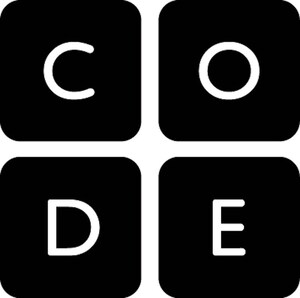Annual Snapshot from Code.org, CSTA, and the ECEP Alliance Reveals Persisting Gaps in Access, Underscores the Impact of Computer Science Education on Students' Futures
SEATTLE, Oct. 22, 2024 /PRNewswire/ -- Today, Code.org, the Computer Science Teachers Association, and the Expanding Computing Education Pathways Alliance released the 2024 State of Computer Science Education report. Published annually, the report provides a comprehensive analysis of national progress in computer science education, featuring national and state-level policy and implementation data with a focus on high school data.
Since last year's report, the urgency among policymakers to expand access to computer science education has increased; 11 states now require students to earn credit in computer science to graduate from high school. While more students than ever are taking computer science, millions still lack the opportunity to engage with this subject, and most states have yet to make it a graduation requirement. With the rise of AI, learning computer science is more important than ever before.
"The data is clear: computer science equips students with essential skills for future careers in all industries. The problem-solving, critical thinking, and collaboration skills gained reach far beyond the computer screen, empowering students in every subject and setting them up for lifelong success," said Cameron Wilson, president of Code.org. "The State of Computer Science Education report shows that while investments and participation in computer science education have grown, the disparities in access are still profound. We need every state to require a computer science graduation requirement."
Key Findings
- Eleven states have passed a graduation requirement: Alabama, Arkansas, Indiana, Louisiana, Nebraska, Nevada, North Carolina, North Dakota, Rhode Island, South Carolina, and Tennessee.
- 60% of U.S. public high schools offer foundational computer science courses.
- Across the U.S., 6.4% of high school students are enrolled in foundational computer science.
- More than $88 million was allocated for computer science in state budgets in 2024.
Empowering the Next Generation of Computer Science Students
A recent University of Maryland study underscores the importance for all schools to invest in computer science education. The research reveals that offering just one computer science course in high school can increase students' earnings by at least 8% by age 24. Notably, the benefits are even more pronounced for low-income students, Black students, and female students.
Despite this research and the momentum that continues to build around the computer science movement, gaps persist for many. Data from this year's report shows that across the country, Black, Hispanic/Latino, and Native American/Alaskan students are less likely to attend a high school that offers foundational computer science. In the last year, young women made up just 33% of students enrolled in computer science, even when their school offered the course.
The power of computer science education to unlock opportunity and create economic mobility for students from all backgrounds has never been clearer. This year's Hour of Code, the annual campaign that introduces millions of K-12 students worldwide to coding, is designed to highlight this opportunity by bridging the gap between students' passions and the technology that powers them. Hour of Code is powered by educators around the world who are dedicated to expanding access to computer science for all students, in their own communities and beyond.
"Much of our forward progress is a result of the tireless efforts of teachers who advocate to expand CS and disrupt inequities," said Bryan Twarek, head of research and innovation at CSTA. "While advocacy is not part of teachers' responsibilities, it is so helpful in moving towards our vision of every child prepared for a world powered by computing."
Learn more about the 2024 State of Computer Science Report: advocacy.code.org/stateofcs
About Code.org
Code.org is a nonprofit dedicated to expanding access to computer science in schools and increasing participation by young women and students from other underrepresented groups. Our vision is that every student in every school has the opportunity to learn computer science as part of their core K–12 education. The leading provider of K–12 computer science curricula in the largest school districts in the United States, Code.org also created the annual Hour of Code campaign, which has engaged more than 15% of all students in the world.
About CSTA
The Computer Science Teachers Association (CSTA) is a membership organization that supports and promotes the teaching of computer science. CSTA provides opportunities for K–12 teachers and their students to better understand computer science and to more successfully prepare themselves to teach and learn.
About Expanding Computing Education Pathways Alliance
The Expanding Computing Education Pathways (ECEP) Alliance is an NSF-funded Broadening Participation in Computing Alliance (NSF-CNS-2137834). ECEP seeks to increase the number and diversity of students in computing and computing-intensive degrees by promoting state-level computer science education reform. Working with the collective impact model, ECEP supports an alliance of 29 states and Puerto Rico to identify and develop effective educational interventions and expand state-level infrastructure to drive educational policy change.
SOURCE Code.org

WANT YOUR COMPANY'S NEWS FEATURED ON PRNEWSWIRE.COM?
Newsrooms &
Influencers
Digital Media
Outlets
Journalists
Opted In






Share this article